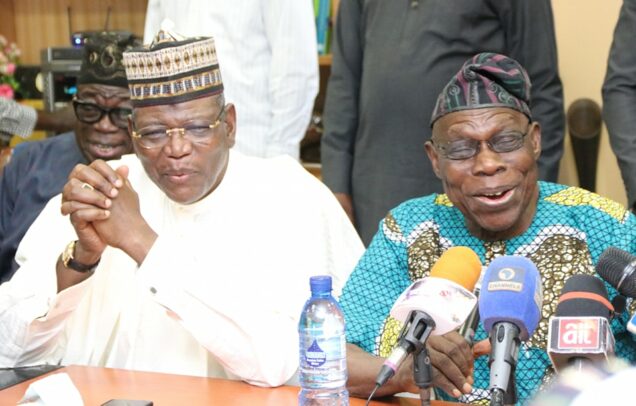LAST Thursday morning, I placed a call to Sam Nda-Isaiah, Chairman of LEADERSHIP newspaper. He said he was at an event, would call me later, but he never did. I wanted to point out that LEADERSHIP newspaper’s lead story from the Jigawa Investment Summit, which quoted Obasanjo as having said that if somebody was not up to the job, Sule Lamido was able or ready to do it, was a very “ingenious” form of editorializing, as we say in the industry.
The reporter read into the report far more than Obasanjo said. I knew this, because I was one of the two rapporteurs for the opening session of the summit where Obasanjo spoke. I took copious notes and we also did a verbatim recording! But I was not surprised that the sensational political slant was what was played up in the LEADERSHIP report; but it did a disservice to journalism which is based on reporting the FACTS of any situation.
I am an old-fashioned believer in basic journalistic ethics. This was an issue we used to debate a lot at DAILY TRUST. I always felt that we should stay with the basics: report the facts and if we felt strongly about the issues in the news, then accompany the report with an analytical sidebar! But some of my colleagues pitched for what they describe as perspective reporting: a mixture of facts and conscious editorialising. It seems that the current shifted a long time ago in the direction of perspective reporting, especially in political reportage in Nigeria. I have never agreed with that tendency and last Thursday’s lead story from LEADERSHIP newspaper just showed all that could go wrong with perspective journalism. This is because Obasanjo spoke only within the context of the developments in Jigawa and Lamido’s strides as governor in the past six years. The context was then elasticized to take in the politics of 2015.
Unnecessary controversyIt made very good reading; helped to up the political ante, especially given the stories which followed in subsequent days, that in response to Obasanjo’s statement in Dutse, Jonathan was planning to probe Obasanjo and the prompt denial from the Presidency! I just think that reporters should stick to reporting the facts of events and avoid the unnecessary controversy of editorializing the news! I have always believed that two institutions are central to democracy consolidation in Nigeria, and these are the judiciary and the media. Section 22 of the Nigerian Constitution obliges the media to hold government accountable to the Nigerian people. I am not aware of any other institution of society which has such a weighty obligation to Nigeria. That is why the media must carry out its functions strictly within the professional canons. There is no other way!


